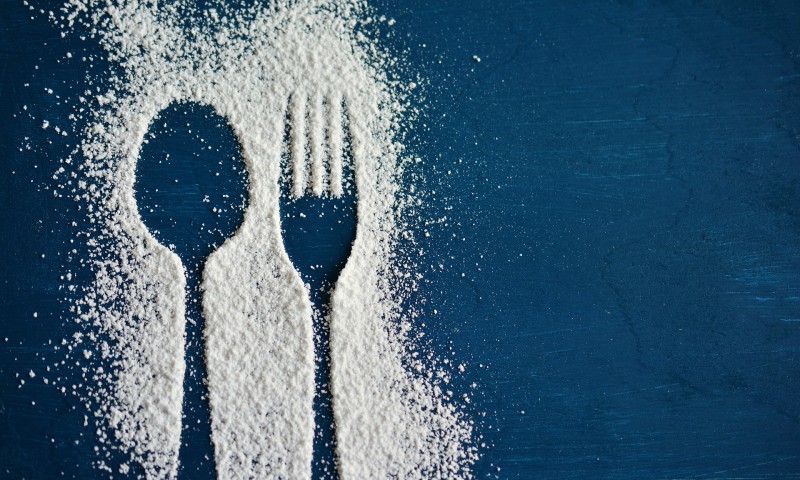In today’s world, it’s nearly impossible to escape sugar. We consume it all of the time! It’s not only in candy bars, cakes, chocolates and ice cream, but it’s also in the places we forget to check – granola bars, cereal, peanut butter, juice… you name it!
Understanding Sugar and Your Body
It’s no secret that consuming too much sugar can have an adverse effect on your weight, but why? First, let’s take a moment to break it down. Sugar is composed of both glucose and fructose, which impact our body differently.
Glucose is vital to life and influential on our metabolism. Our bodies produce it naturally and use it to turn food into energy.
Fructose, on the other hand, is not a natural part of our metabolism. When we eat a lot of sugar, most of the fructose is metabolized by the liver and turned into fat.
It’s also important to distinguish between sugar that is naturally found in the foods we eat, and that which is added for extra taste. Naturally-occurring sugars are found in foods such as milk and fruit.
Sweetened-beverages and other foods such as granola, candies, cakes, breads and spreads, however, are enriched by non-naturally occurring sugar. The latter usually produces more of the hamrmful effects on the body which have an impact on weight.
How Are Sugar and Weight Related?
We’ve discussed the breakdown of sugar and how it affects the body. But how does it affect our weight, specifically?
Hunger vs Satiety
Foods rich in sugar are not as nutritionally dense as whole foods. Whole foods are filled with protein, fiber and other nutrients which fill our stomachs and cause us to be less hungry. High-sugar foods will typically fail to fill you up and sustain you for long periods of time.
Increased Calories
Foods rich with sugar (apart from fruit) are typically very high in calories. Consuming too much of it can significantly increase your calorie consumption. If not paired with increased physical activity, this will usually lead to weight gain.
Resistance to Insulin
Consuming too much glucose from sugary foods is a known cause of insulin resistance and elevated insulin levels in the blood.
Managing Your Intake
A healthy and nutritious diet is all about diversity and moderation. There are plenty of ways to manage your sugar intake so that you make healthy decisions for managing your weight:
- Use substitutes – Including artificial sweeteners and sugar alcohols
- Follow the Three Ingredient Rule – Look at your food’s nutrition label. If sugar is listed as one of the first three ingredients, consider a different option.
- Choose Non-sweetened Beverages – Limit options such as juice, coffee and alcohol and opt for water instead.
- Use Extracts – Instead of adding sugar to recipes, consider extracts like almond, vanilla or lemon.
Looking for More Ways to Reduce the Amount You Consume?
CLICK HERE for tips from the American Heart Association.





